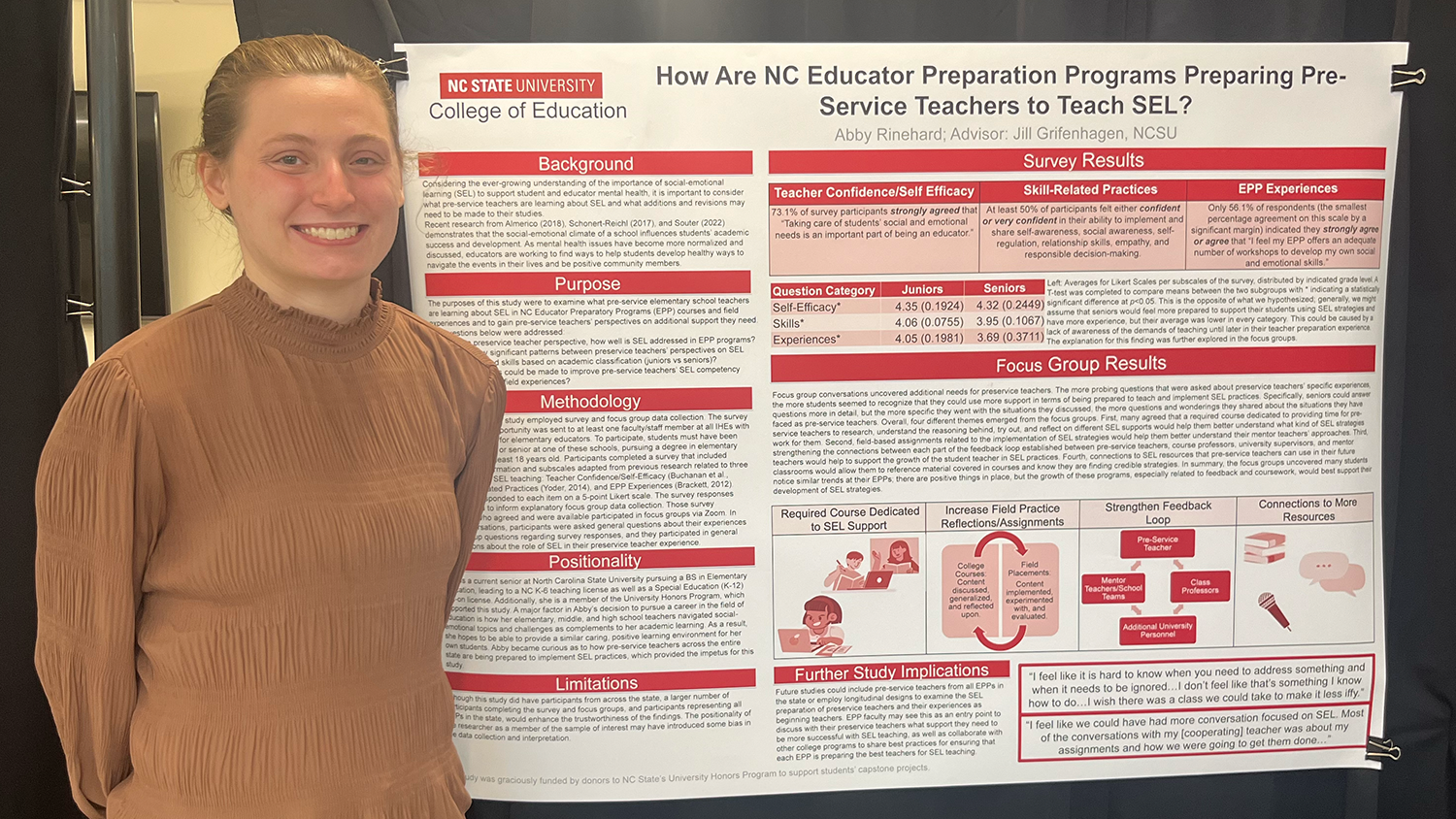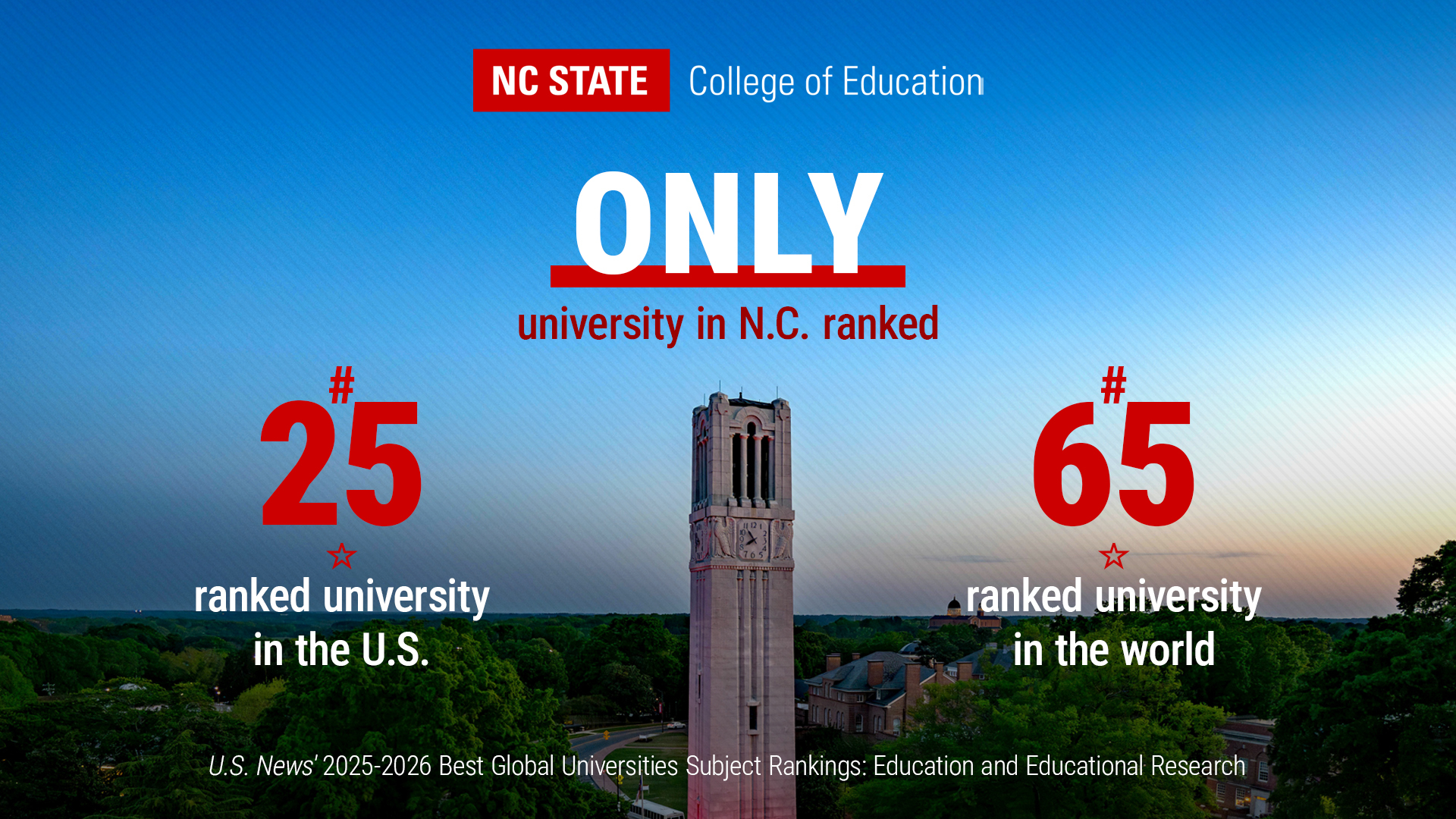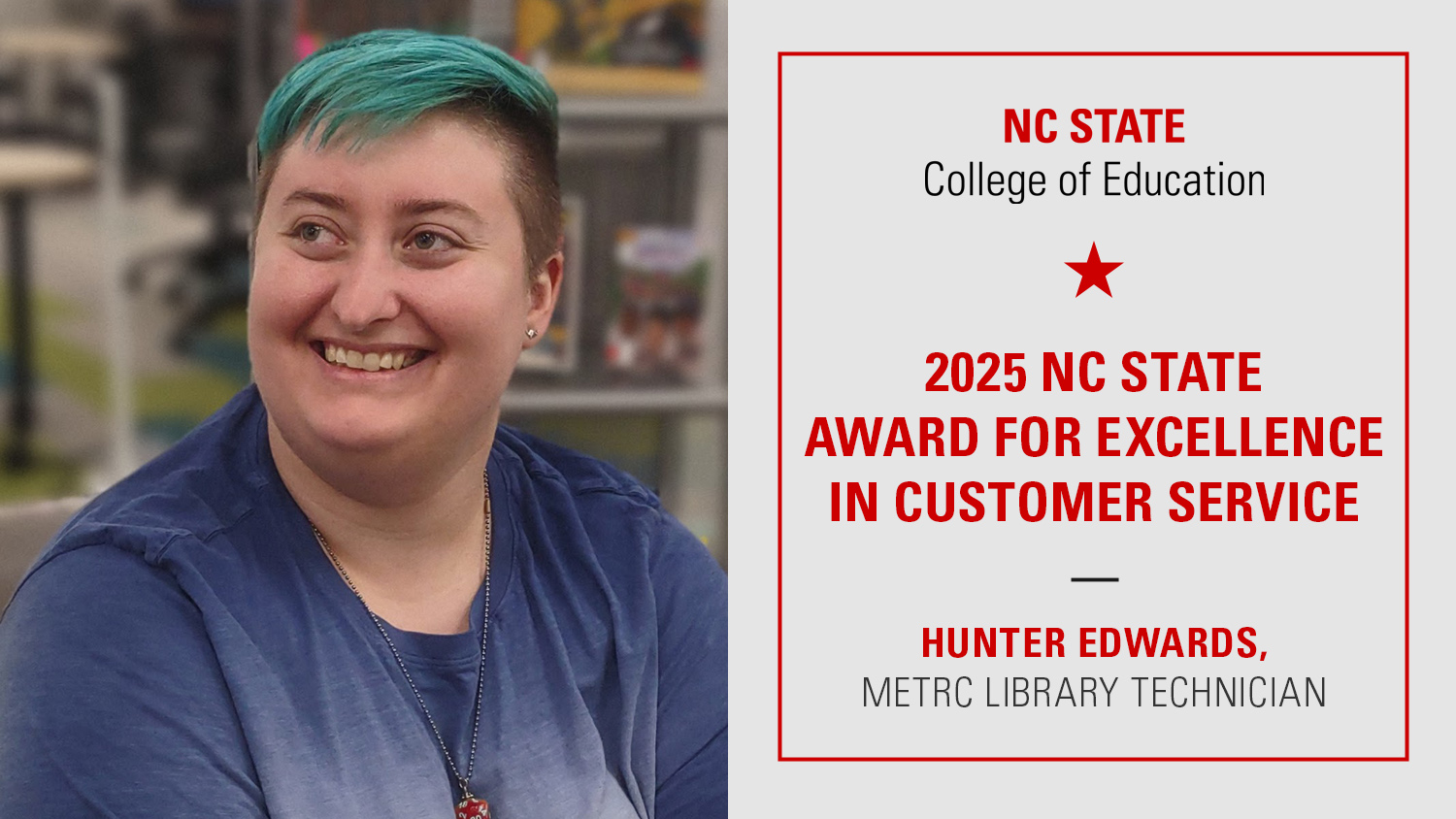My Student Experience: Elementary Education Major Abby Rinehard ’24 Explores Social-emotional Learning Preparation Through Presented Research Study

When Abby Rinehard ’24 first came to the NC State College of Education as an elementary education major, the idea of conducting research never crossed her mind. However, a selected course and an opportunity presented by Associate Professor Jill Grifenhagen led her on a path that allowed her to not only conduct her own research project, but also present her findings at a statewide conference this past fall.
During her first semester in the College of Education, Rinehard took an honors seminar called “Leadership in Professional Research,” thinking that the leadership aspects could help her in her future career as an educator. At the same time, she was enrolled in her ELM 250 course with instructor Kari Kuebel, who suggested to Grifenhagen that Rinehard might be a good candidate for an undergraduate research assistant position.
“I took that class, and it kind of challenged me to see the educational implications of research as well as the interdisciplinarity of research,” Rinehard said. “When I found out Dr. Grifenhagen was offering this research opportunity, I decided it would be a great experience because I wanted to dive into research a little bit more and push myself.”
During her time as an undergraduate research assistant, Grifenhagen asked Rinehard if she would be interested in developing a research project of her own, and Rinehard jumped at the opportunity to conduct a study about social-emotional learning, a topic that led her to become an educator in the first place.
“One of the big reasons why I wanted to go into teaching in the first place was the whole idea of being able to support social-emotional learning for students because that was something that was super impactful to me in my educational experience,” Rinehard said. “I wanted to explore what social-emotional learning looks like in North Carolina and how undergraduate students feel like they’re being prepared to handle that part of the classroom.”
Rinehard conducted a mixed-methods study of juniors and seniors in elementary education programs from colleges and universities across North Carolina to examine how well pre-service teachers believed social-emotional learning was addressed in educator preparation programs, what patterns existed between pre-service teachers’ perspectives on their social-emotional learning competency and skills based on academic classification, and what adjustments could be made to improve pre-service teachers’ social-emotional learning competency within their programs and field experiences.
In her survey results, students in their junior year consistently ranked higher than those in their senior year on questions related to beliefs about their self-confidence and efficacy, skills-related practices and educator preparation program experiences. Through interviews, however, Rinehard found many of the students who believed they were well-prepared for addressing social-emotional learning in the classroom actually struggled to name specific examples or strategies related to the subject.
“In the survey, there were a lot of people who said, ‘I feel pretty prepared for this; I care about my students.’ But, when I asked questions about how often they were seeing social-emotional learning and asking for explicit examples, people struggled to think of one. It happened in every single focus group, this idea of, ‘I thought I knew, but now I’m not quite sure,’” Rinehard said.
Through focus groups, Rinehard also determined that elementary education students across the state felt that they needed a course dedicated to social-emotional learning in their programs, increased field practice and assignments related to social-emotional learning, and a stronger feedback loop between pre-service teachers, professors, educators, field supervisors and mentor teachers, as well as more connections to resources.
“It was really interesting that there was so much consistency across the state of students saying they need a class for this, because the focus groups were purposefully mixed in terms of universities and in terms of grade level,” she said.
Rinehard had the chance to share these findings with scholars from across the state in November, when she presented a poster at the State of North Carolina Undergraduate Research and Creativity Symposium (SNCURCS).
As one of only two undergraduate researchers from the field of education presenting at the event, she said the symposium was a great opportunity to not only share what she had learned through her study with others but also to learn about interesting topics other students from universities across the state were researching.
“It was a really cool experience, and it makes me excited to go into more conferences and professional development opportunities as a teacher,” she said.
The research experience as a whole, Rinehard said, is also one that she hopes to draw on when she enters her own classroom as a full-time teacher in the fall of 2024 and perhaps build on in the future.
“I think this is absolutely going to make me a stronger teacher, because it helps with the awareness of things going on in your classroom as well as that data analysis piece,” she said. “My professors also joke that they’ll see me back here one day, so I’d also love to get my master’s degree and see where that takes me.”
- Categories:


